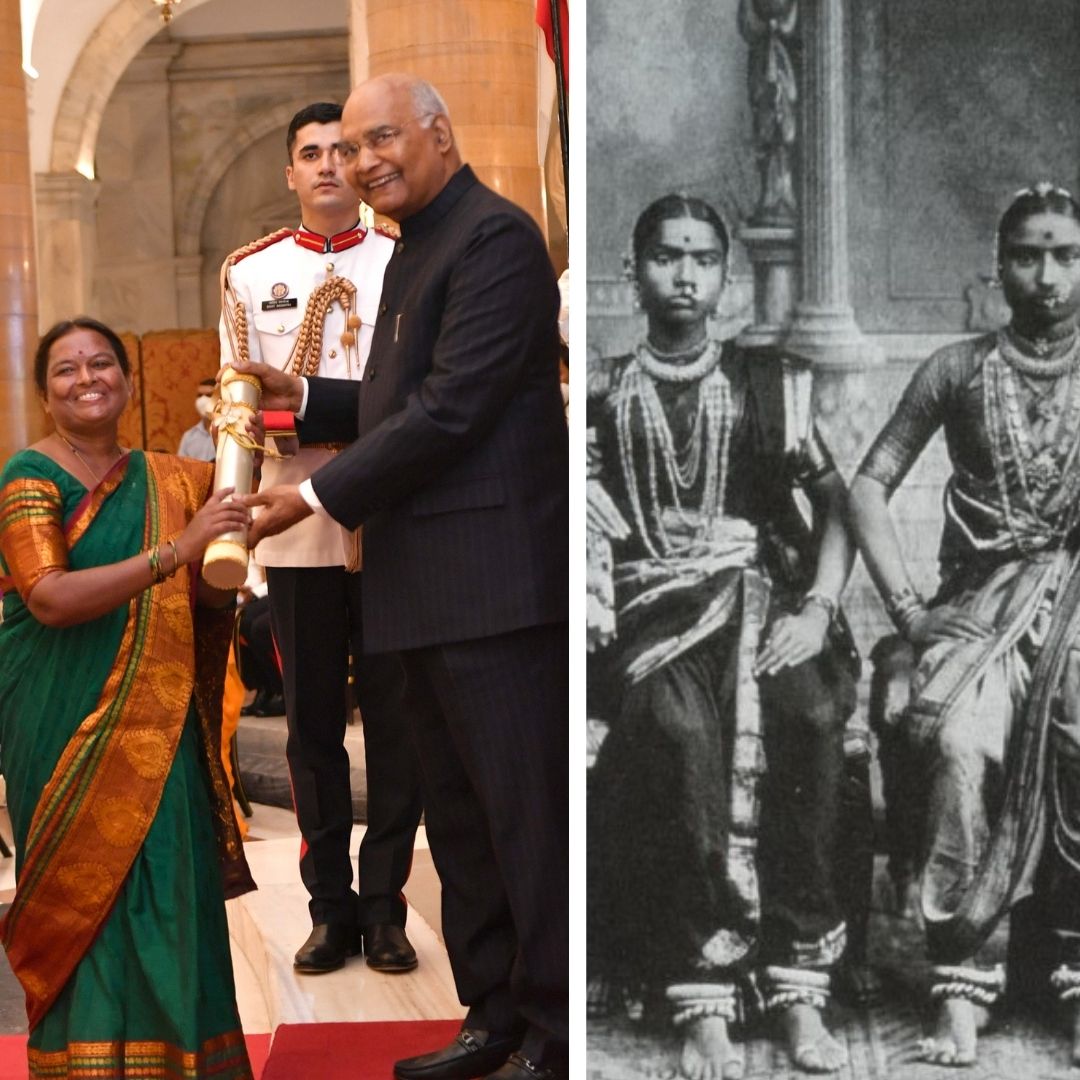
Image Credits: Twitter/President Of India, Wikimedia
How 'Devadasi' System Continues To Be A Problematic Tradition In Indian Society
Writer: Akanksha Saxena
I am a budding journalist who loves to write stories that have the ability to connect with people.
India, 10 March 2022 9:34 AM GMT
Editor : Snehadri Sarkar |
While he is a massive sports fanatic, his interest also lies in mainstream news and nitpicking trending and less talked about everyday issues.
Creatives : Akanksha Saxena
I am a budding journalist who loves to write stories that have the ability to connect with people.
A controversial practice, the 'Devadasi' system persists in several parts of the country even today, where young women were forced to dedicate their lives to worshipping the deity.
A woman named Shobha Ghasti from Karnataka's Belagavi district became one of the 'Nari Shakti Award' recipients. On Tuesday, International Women's Day, she received the prestigious award from President Ramnath Kovind in New Delhi for her work towards eradicating the archaic 'Devadasi' system. The New Indian Express quoted her, "I was not expecting this honour. The award has increased my responsibilities. I will work for the upliftment of women, especially from Devadasi families, till my last breath."
The 'Devadasi' System has existed since the sixth century. Considered a female artist, the young women dedicate themselves to worshipping a deity. Along with performing the services in the temple, the girls also learned classical dance forms such as Odissi, Bharatanatyam, Kuchipudi and Mohiniyattam. They were considered the divine 'protector of the arts'.
Controversial And Traditional Practice
The practice dates back to when the Somavanshi dynasty expected young women to marry the deities to honour them. As a result, such women were given respect in two ways- they were to be treated as if they were Goddess Lakshmi themselves, and they were women who could control human impulses. Further, the 'Devadasis' were expected to live a life of celibacy and was immune to widowhood as they devoted their lives to the immortal powers.
Several regions in India supported the 'Devadasi system. The Chola Empire in South India were one of the many avid supporters of the tradition. History suggests that around 400 dancers, along with the guru and music orchestra, were taken care of by Thanjavur's Brihadeesvar Temple with generous grants and an unlimited supply of oil, turmeric, betel nuts and leaves. Other states such as Odisha, Karnataka and Andhra Pradesh were also known.
Bordering On Sexual Exploitation
For many years, the 'Devadasi' system was seen as a religious practice to please the divine powers above. However, there is a thin line between devotion and exploitation, which the tradition often crosses. With the British making Inda its colony, its progressive yet controversial thought process influenced many Indians to fight against social evils. The 'Devadasi' tradition became one of them.
The 'Devadasis' started to be associated with prostitution in the country. During the British era, venereal syphilis disease became rampant amongst the soldiers. In light of this, the community was held responsible for it. Due to this, the Devadasis were expected to register due to the misunderstanding. The notion reinforced stereotypes against them, which often called them 'impure' and 'dirty' for indulging in so-called sexual activities.
In light of this, recent years has seen a rise in local crusaders aiming to empower the 'Devadasis', both former and current. The community was denied education and other necessities that did not allow them to settle in mainstream society. Therefore, people like Shobha Gasti are fighting for the cause and giving them an identity.
Also Read: 'I Am Your Bapu': This Indian Maharaja Gave Refuge To Polish Children, Women During World War II
 All section
All section














